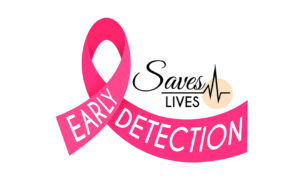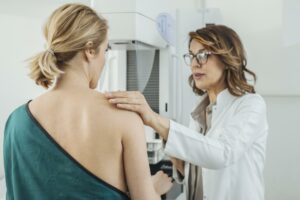Presently, breast cancer is the most commonly identified variant of cancer in women all over the world. With almost 2.3 million women being diagnosed with breast cancer in 2020, the importance of breast cancer prevention increased profoundly. Generally, a breast cancer diagnosis could help you find out breast cancer in the form of a tumor or a lump. However, it is quite important to understand the influence of other factors such as family history on the occurrence of breast cancer.
Breast cancer screening measures are definitely helpful for understanding the extent to which the disease has spread in the body. Most important of all, the reason to focus on breast cancer family history clearly points out to higher chances of developing cancer if anyone else in the family had developed cancer. The benefits of earlier screening and detection of family history of breast cancer could help in restricting the progress of the disease towards advanced stages. At the same time, earlier detection could also help in the selection of appropriate treatment methods with proven assurance for success.
What is the Role of Family History in Breast Cancer?

Family history is one of the notable risk factors associated with breast cancer. Primary prevention of breast cancer is possible through proactive detection of a family history of cancer. With an idea of how close you are related to cancer patients in your family, you could identify best practices for secondary prevention of breast cancer. Obesity, increased alcohol intake, and smoking are some of the common factors which lead to breast cancer. However, breast cancer family history can be an uncalled factor for landing up with a deadly disease.
Women with a first-degree relative suffering from cancer have a five times higher risk of getting cancer if she has two or more first-degree relatives. On the other hand, breast cancer screening family history must also consider first-degree relatives with ovarian cancer. Following the proper guidelines and best practices in ICD 10 breast cancer screening gives you the chance to know how much you are at risk. Tertiary prevention of breast cancer at later stages could be successful only if you are careful in screening. So, breast cancer screening tests determine how long from breast cancer diagnosis to surgery.
Why Should You Choose Breast Cancer Screening?

Many women are not aware of the benefits of breast cancer screening for preventing a fatal disease. Family history of breast cancer or any other type of cancer, especially ovarian, could be a massive risk factor. Therefore, breast cancer prevention depends a lot on identifying whether you have any relatives with cancer. Secondly, the simplicity of methods that you can follow for screening breast cancer is also a vital reason for choosing them. Proper screening gives you the right foundation for breast cancer diagnosis and getting it done right.
Screening methods are not invasive and complicated, thereby making them easy for anyone to understand and use. For example, different videos on the internet today could show how to self-examine breasts for any signs of cancer. The identification of breast cancer family history also helps you find the ideal time to carry out pathological and radiological investigations. For example, you may need screening tests five years before the index case or the first cited case of cancer in your family.
How to Do Breast Cancer Screening?

The first step in breast cancer screening would be to identify the different breast cancer types. The progression of cancer would determine the type, while there are many possible causes. Also, women above the age of 40 should start taking mammogram evaluations once every year. Before that, self-examination is recommended for all women above the age of 30 years. Self-examination could help in finding out cancer in the form of a small lump. Irrespective of the causes of breast cancer, there are many ways to find out how you are dealing with cancer.
You can go for radiological investigation of breast cancer with methods like digital mammography, ultrasound of the breast, or digital tomosynthesis. An MRI of the breast could be recommended for younger patients due to the higher density of the breast. PET scan is also another radiological investigation technique recommended for later stages.
The pathological methods for screening breast cancer include core needle biopsy for definitive diagnosis and better subtyping of disease. On the other hand, liquid biopsy or detection of the disease from blood is not effective in the early stages. In addition, the observation of non-palpable lesions in the mammogram is also helpful for breast cancer screening.
Breast cancer screening
As you can notice clearly, primary prevention of breast cancer is possible through early examination and screening. With a proper impression of breast cancer family history, you can find the ideal time to start looking for causes for breast cancer. The cost for secondary prevention of breast cancer at later stages could be reduced through proactive identification. At the same time, compliance with ICD 10 breast cancer screening best practices and guidance could offer better results. Tertiary prevention of breast cancer is possible through radiological or pathological investigation to find how much the disease has spread.
The observation of breast cancer screening family history also helps considerably in finding out the time gap between regular screening tests. Interestingly, you can avail the benefits of breast cancer screening tests, consultation, and treatment in India at comparatively low costs. The average cost for breast cancer treatment in the USA ranges from $20,000 to $100,000.
The average cost for breast cancer treatment in the UK is around $10,000 to $11,000. Furthermore, the lack of clarity on how long from breast cancer diagnosis to surgery can imply the addition of extra costs. On the other hand, the average cost for breast cancer treatment in India ranges from $5000 to $7000. With such exemplary cost advantages, you should find the ideal platform to connect with the top medical facilities and professionals.
Win the battle against Breast Cancer
There is nothing you can’t do to fight breast cancer. Follow the ideal tenets of breast cancer prevention and listen to the experts. Try to go for breast cancer diagnosis as early as possible to detect cancer before it causes real damage. Use the bane of breast cancer family history to your benefit as a warning signal for the time to start looking for cancer. You can avail the guidance and care of experienced breast cancer treatment professionals with the support of medical tourism now. Connect with reliable platforms for cost-effective breast cancer screening and treatment by top medical experts right now.
Frequently asked questions
1. How long from breast cancer diagnosis to surgery?
The average duration from breast cancer diagnosis to surgery is around 27 days. Interestingly, patients opting for breast conservation surgery had a comparatively lower mean time to surgery of around 25 to 29 days.
2. What are the diagnostic tests for breast cancer?
The diagnostic tests for breast cancer screening involve radiological and pathological investigations. Radiological diagnostic tests can include ultrasound, dynamic MRI, digital mammography, or digital tomosynthesis. However, pathological diagnostic tests could involve a core needle biopsy.
3. What is the most accurate test for breast cancer?
The most accurate test for breast cancer would be a biopsy. Core needle biopsy helps in extracting core tissue from the affected area along with other imaging tests to find cancer. However, breast cancer screening tests have different implications for different types of patients and could deliver varying results.
4. How is breast cancer prevented?
There are many proven measures that can help you reduce the risks of breast cancer. One of the first measures is to look for breast cancer family history, which is essential for faster and accurate screening to find cancer in early stages. Other helpful recommendations for preventing breast cancer include physical activity, reduced alcohol consumption, avoiding hormone therapy, and maintaining a healthy weight.
5. Who is at the greatest risk for breast cancer?
Basically, being a woman and getting old are the common risk factors for breast cancer. So, women above the age of 50 are perceived to be at greater risk of breast cancer. However, women with breast cancer screening family history could develop it at an early age.




